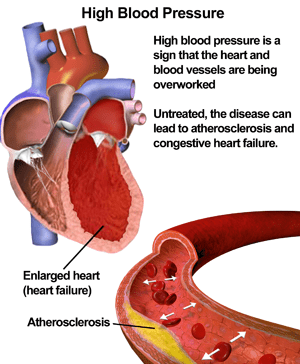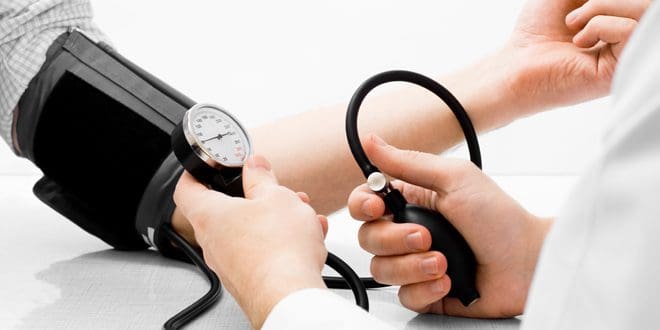 I see quite a few middle aged people with high blood pressure (hypertension) and in a significant percentage of these people they do not get adequate control of their blood pressure with anti-hypertensive drugs. Why is this?
I see quite a few middle aged people with high blood pressure (hypertension) and in a significant percentage of these people they do not get adequate control of their blood pressure with anti-hypertensive drugs. Why is this?
Well one thing to be aware of is what are the upper and lower readings of your blood pressure ?
The upper reading is known as the systolic blood pressure and is the pressure we measure in your artery when the heart contracts to pump your blood around your body. The lower reading is known as the diastolic blood pressure and is the pressure we measure in your artery when the heart relaxes in between contractions. The systolic reading should not be more than 140 and the diastolic should not be more than 90. This is recorded as 140/90 meaning the systolic pressure = 140 and the diastolic = 90. At rest ideally your blood pressure reading should be around 120/70 although many people get nervous when their blood pressure is being measured and this puts it up a little – this is called “white coat hypertension.” After intense exercise the blood pressure will rise quite a lot and this is a normal and temporary condition.
So what can be the problem if your blood pressure medications are not working?
- You may be very unfit and do not do any exercise at all – regular exercise lowers blood pressure
- You may be very overweight which works the heart too hard
- You may have a fatty liver – the liver has a lot to do with blood pressure control
- You may have a kidney problem – so have a urine test and a Doppler scan of your renal arteries
- You may be very stressed and need to learn to relax by doing Yoga, Pilates or meditation
- You may have hardening of the arteries which is common with age
If your arteries are hard they will be stiff and do not relax and open up to allow the blood to flow when the heart contracts- this will be seen by a high systolic pressure (usually well over 140) and a normal diastolic pressure (less than 90 and sometimes even as low as 75).
It is important to soften the arteries so they can relax when the heart contracts and also to clean out plaque that may be narrowing the arteries. This will often cure systolic hypertension and greatly lower the risk of stokes and heart attacks.
So what can we do to soften the arteries?
Many people take cholesterol lowering drugs but I am not a great fan of these drugs unless cholesterol levels are very high or if people do not want to try and follow a healthy diet and lifestyle. Many people take blood thinners such as aspirin or the newer anti-coagulants to try and prevent plaque. Of course these drugs carry a risk of bruising and abnormal bleeding and when the blood pressure is too high, this could increase the risk of haemorrhagic strokes. Yes it is a dilemma and you must listen to your own doctor.
Here are a few tips to soften the arteries naturally –
- Eat an avocado every day as this provides a lot of vitamin E to soften the arteries
- Take vitamin C in a dose of 2000mg daily, as this improves collagen in the arteries making then more flexible
- Take one to two tablespoons of organic apple cider vinegar in the middle of each meal – this will help to clean out plaque that narrows the arteries
- Eat garlic regularly and/or take a supplement of garlic. Scientific studies have shown that garlic lowers blood pressure
- Drink vegetable juices made with dark green leafy produce such as cabbage, spinach, kale, parsley, mint, ginger and carrot. The high folic acid content of these vegetables will lower your blood levels of homocysteine and this will soften your arteries.
- Drink plenty of water to keep your kidney function healthy
For more information see my book titled Raw Juices Can Save Your Life – an A to Z Guide of Juicing for Diseases


dr’s pressure me constantly to take cholestoral tablets, its at 6, which i do not think is to bad, what do u think?
Hi there, If you read my book “Cholesterol the Real Truth” you will get a great understanding of why a total cholesterol of 6 is absolutely fine! Our brains are 70% fat! we need fats in our diet. Cholesterol is good for us. Dont get swept up in one sided opinion- do your research. My book will help you to form your own opinion of why cholesterol IS GREAT for optimal health!